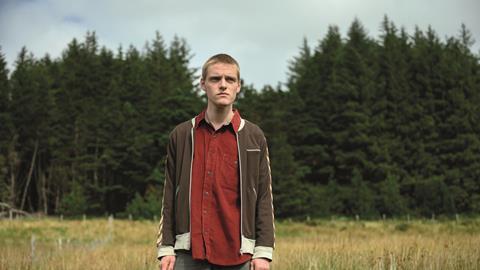Exclusive: culture secretary reveals rationale for calling off previous regime’s privatisation plan
When global streaming giants like Netflix, Disney+ and Amazon Prime began their entry into the broadcasting world, the government had two options. We could either sit back and watch it happen, or we could make sure British broadcasters were in a position to compete in this exciting new digital TV age. We decided to do the latter - and so last year we launched a comprehensive review of the media landscape, including, crucially, a consultation on the future of Channel 4.
Channel 4 is one of our great national institutions. It was set up in the 1980s by Margaret Thatcher, and since then it has done exactly what she wanted it to do. It has positively disrupted British broadcasting, offering viewers greater choice, and it has driven an explosion in the UK’s independent production sector, which has surged from £500 million in 1995 to £3 billion in 2019.
Channel 4 has been an analogue success story. Now I want to make sure it is a digital success story too, no matter how rapidly the technology changes. So over the last few months I have been taking a careful look at the broadcaster’s long-term sustainability, at the business case for its privatisation, and at the wider economic outlook.
A lot has changed over the last few months. Families and businesses are facing extremely challenging cost of living pressures, and inflation has sent shockwaves through the global economy. After carefully reviewing the business case for selling Channel 4, and after listening to what stakeholders have had to say throughout this entire process, I have decided that we will not sell Channel 4. We need to be focusing all our efforts on growing the economy and driving the UK’s recovery.
However, the fact remains that things have changed dramatically since the very first episode of Countdown hit our screens in 1982, launching Channel 4 as we know it. The original TV disruptor has now become the disrupted, and Channel 4 now faces a few key challenges if it wants to compete with its streaming rivals.
Under current legislation Channel 4 is more limited than other public service broadcasters in its ability to make and own its own content. Unlike the BBC, it is not funded by the taxpayer. Nor can it make money from its own in-house studio. That leaves the broadcaster reliant on advertising revenues.
If we want to protect Channel 4 in the long-term, doing nothing is not an option.
So instead of a sale, I will be pursuing an ambitious package of reforms to boost the broadcaster’s sustainability.
“I have secured a commitment from the broadcaster both to double the number of roles outside of London and double its annual investment in the 4Skills training programme for young people”
Under this agreement, Channel 4 will continue to play its own part in boosting the UK’s creative economy - particularly the independent production sector. As one of our few public service broadcasters, Channel 4 has a unique duty to serve and represent the entire country. So I have secured a commitment from the broadcaster both to double the number of roles outside of London and double its annual investment in the 4Skills training programme for young people. That means more people will have better access to good training and jobs in the sector, across the whole country.
At the same time, I will be pursuing reforms via the Media Bill to help Channel 4 grow and better compete in the streaming age. That includes a new statutory duty on Channel 4 board members to protect its long-term finances. It also includes legislation that would relax the publisher-broadcaster restriction in Channel 4’s remit - giving the broadcaster flexibility to eventually make and sell a proportion of its own content, which would help put Channel 4 on a more stable financial footing.
In determining how this relaxation should be designed and implemented, the government will work closely with the independent production sector to consider what steps are necessary to ensure that Channel 4’s important role in driving investment into the sector - especially in the newest, smallest and most innovative producers - is safeguarded.

I know how important our independent production sector is - not just to British TV, but to our entire creative industries - and I am absolutely committed to making sure those indies continue to thrive even as Channel 4 moves towards making some of its own programmes. We need to do this in a way that ensures Channel 4 continues to play its key role in incubating the independent production sector.
Any changes to Channel 4’s commissioning model would need to be introduced gradually, with appropriate checks and balances, and following consultation with the sector. That includes increasing the level of Channel 4’s independent production quota, which is currently set at 25% of programmes; and potentially introducing specific protections for smaller independent producers.
I believe we are about to enter an exciting new chapter for one of our best-loved broadcasters. Over the last 40 years, Channel 4 has become an integral part of our national life. I do not want that to change. These reforms will give one of the bastions of British television even more freedom to invest, to innovate, and to entertain - for the next 40 years and beyond.
- Michelle Donelan is the Secretary of State for Digital, Culture, Media and Sport






























No comments yet